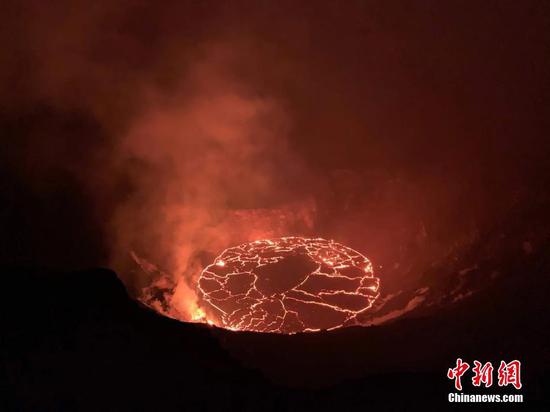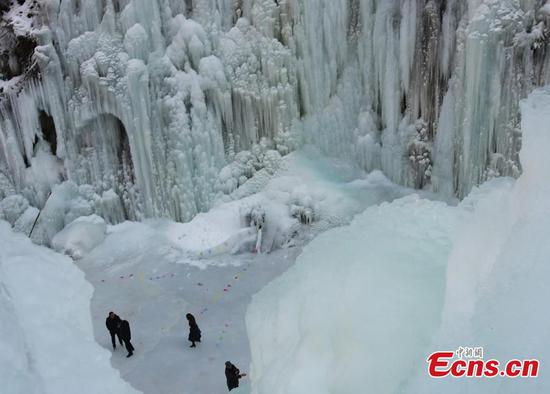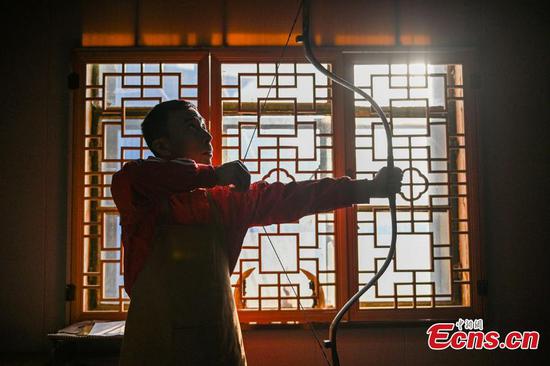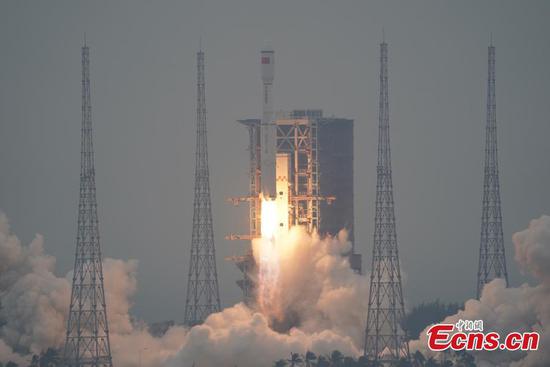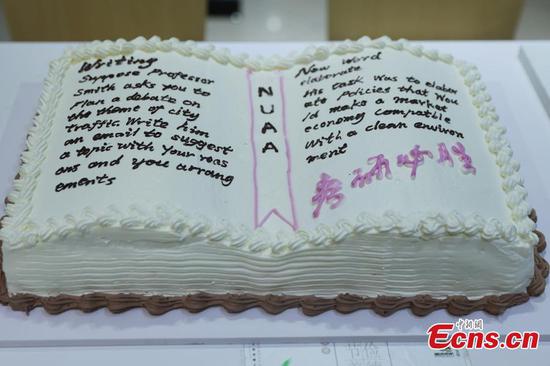
Tourists visit the Potala Palace in Lhasa, Tibet autonomous region. (Photo by He Penglei/China News Service)
China's top legislature on Wednesday strongly opposed the United States signing into law a funding bill for the 2021 fiscal year which contains China-related negative content.
The related negative content and clauses on the Tibet autonomous region, Taiwan, Hong Kong and the Xinjiang Uygur autonomous region seriously damage China's national interests and grossly interfere in China's internal affairs, the Foreign Affairs Committee of the National People's Congress, China's top legislature, said in a statement on Wednesday.
Tibetan people's rights of religious belief are safeguarded and the rights of Tibetan Buddhist temples and monks are also fully guaranteed, it said.
As part of the massive $2.3-trillion package for the year-end bill to fund the U.S. federal government and provide long-delayed coronavirus relief, the "Tibet Policy and Support Act of 2020" was also signed on Sunday. It seeks to encourage external interference in the process to appoint the next Dalai Lama.
"The conflicts between China and the Dalai clique are never ethnic, religious or human rights issues. They are about national sovereignty and territorial integrity, which are key matters of principle," the committee said.
The legislature of the Tibet autonomous region on Wednesday also expressed strong indignation about the passage of the bill because it has sent an extremely wrong signal to Tibetan separatist forces.
"The reincarnation system of the Dalai Lama has lasted for centuries. The 14th Dalai Lama was selected and appointed by following the system. His appointment also gained approval from the central government," the Standing Committee of the People's Congress of the Tibet autonomous region said in a statement.
"The U.S.' intention to interfere in the normal reincarnation procedure of living Buddhas under the pretext of human rights and religion is to cause instability in the region."
The bill also calls for establishing a U.S. consulate in Tibet and prohibiting China from establishing any new consulates in the U.S. until Washington is granted its own diplomatic outpost in Tibet.
"Some politicians in the U.S. Congress have ignored these objective facts and maligned China's Tibet-related policies, fully exposing the intention to use Tibet-related issues to interfere in China's internal affairs and hold back China's development," the top legislature added.
Some clauses in the bill bolstered elements seeking "Taiwan independence" and wantonly slandered China's policies and measures to safeguard prosperity and stability in Hong Kong and Xinjiang.
The attempt by the U.S. side to contain China's development and sabotage China's national security and social stability with these measures will never succeed, said the statement of the top legislature.
The China Association for Preservation and Development of Tibetan Culture, a Chinese nongovernmental association, also resolutely opposed the distortion and smearing of the human rights situation in Tibet in the U.S. funding bill.
The association "will never accept and strongly opposes the U.S. practice", it said in a statement.
This year marks the 69th anniversary of the peaceful liberation of Tibet. The autonomous region has made great progress in its human rights cause over the past 69 years, the statement said.
After achieving peaceful liberation, Tibet introduced a democratic reform which enabled 1 million serfs to enjoy human rights and established the system of regional ethnic autonomy, it said.
The region has achieved rapid economic and social development, sustaining double-digit GDP growth for more than 20 consecutive years. The average life expectancy of people in Tibet has risen from 35.5 in 1951 to 70.6 years.
Over the years, Tibet's culture has also witnessed huge development and prosperity, the association said.













